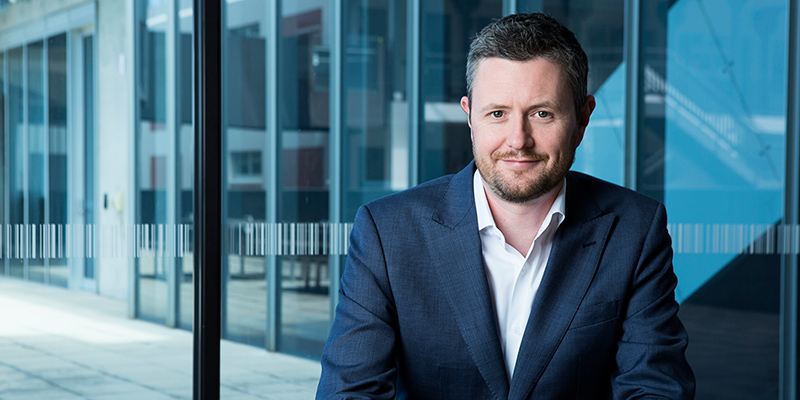From the Vice Chancellor
 INSIDE UNISA
INSIDE UNISANot content with attracting more new students onto UniSA campuses than ever before, we want to make sure that we attract all of the best talent that’s available to teach them, to support their learning and to help build a university with a vibrant future.
To do that successfully we have to ensure our institution has the gender equity that is critical to developing a diverse workforce where innovation and enterprise thrive.
As you would all know by now, in 2015 we chose to actively participate in the Science in Australia Gender Equity (SAGE) Pilot of Athena SWAN.
At the end of this month we submit our application for Bronze award accreditation. To achieve that we undertook a self-assessment process into our institution’s structures, systems and culture to identify gaps in and barriers to gender equity in STEMM.
Rather than see all that hard work and the passion and the energy that the SAGE team brought to the project come to a stop, we decided to create March as Gender Equity month – just because we can – but it is a perfect time to start to make the changes we committed to, to raise awareness and encourage all parts of the University to identify ways in which they support gender equity and to change practice to encourage diversity.
UniSA has always held a strong commitment to gender equity. One of the first policy commitments we made shortly after we became a university in 1991 was to equality of opportunity, ensuring the institution would take the necessary steps to remove potential barriers for women to work, study and attain career success.
We appointed one of Australia’s first female Vice Chancellors, Denise Bradley and, since 2017 we have had a 50-50 gender balance on SMG. Just last year we welcomed Pauline Carr as our first female Chancellor.
Right now nearly 61 per cent of UniSA’s staff are women – but only 36 per cent of our senior staff and 34 per cent of Level Es are women. For STEMM disciplines, 35 per cent of senior staff and 21 per cent of Level Es are women, so we have a lot further to go. But, since March is UniSA’s Gender Equity month, I wanted to highlight some of the activities we have already undertaken to further entrench equity into our DNA.
We launched the Women Only Future Industries Fellowships with Santos and University College London in 2017 and that has been a great success story. It has even been recognised as a case study in the Universities Australia best practice guide.
We sponsor important events such as the CEDA Women in Leadership series, International Women’s Day breakfast and Women in Innovation Awards.
We have one of the largest Girls in STEM programs (confusingly it loses one of the Ms because there is no medicine in the girls’ program) nationally – engaging and promoting STEM careers to the next generation.
We have introduced a scheme to provide financial support to women to enable them to maintain their research momentum during and post maternity leave.
We have strong flexible workplace policies and are working to ensure consistent application.
We are raising awareness internally of how bias impacts equity – to encourage staff to consider equity in their daily practice and decision making.
Our future activities will include taking a systemic approach to embedding gender equity in all aspects of our work, including:
- Workforce planning
- Academic promotions
- Policy development and evaluation
- External communications and engagement
- Corporate and individual performance monitoring and evaluation.
It’s incredibly important to our success and our future that we explore the reality of gender inequity and commit to working together to change perceptions and behaviour.
As we embark on our next journey through E25, we are committed to our People - one of our three strategic pillars (the other two, for those of you who nodded off during the merger discussions, are Programs and Precincts).
Our ambition is to achieve GOLD SAGE Athena SWAN accreditation, which will be the ultimate recognition that we have become the example for others in the university sector to follow.
We are committed to this journey and as part of this we will make diversity and equity consciousness a behavioural expectation within our Core Attributes and we’ll roll out unconscious bias training, making our cultural expectations visible to all staff.
But as a healthy start, E25 will provide us the opportunity to recruit more women to leadership positions and to implement our Bronze Action Plan.
That Action Plan starts immediately as we build a more inclusive and diverse environment.
As we move into a time of change, I want to ensure that gender parity remains a focus as we transform our structures.
We are the university of choice for more than half the number of Year 12s making the switch from school to university. Let’s aim to be the university of choice for academics and professional staff as well, each of them knowing that their cultural identity, their perspective and their contribution is valued and makes them exactly the right fit to work within our University of Enterprise.
Professor David Lloyd
Vice Chancellor and President
Other Stories
- Painless needles on the way for vaccinations
- Hi. How can I help you? Health clinic embraces the robot age
- Virtual health coach ‘Paola’ will help you get fit and eat well
- Carbon-free renewable energy solution to ‘heat up’ industry
- From the Vice Chancellor
- Achievements and Announcements
- The technology to take a jury into a 3D crime scene
- Oscars 2019 plays it safe with Green Book, lacks enlightened thinking
- Organ-on-a-chip technology to reduce side effects of radiotherapy
- Find out about UniSA’s dedicated student support services (Video)
- International defence research lab with France planned for Adelaide
- New innovation hub in Whyalla to nurture regional startups
- The latest books from UniSA researchers
- In Pictures




